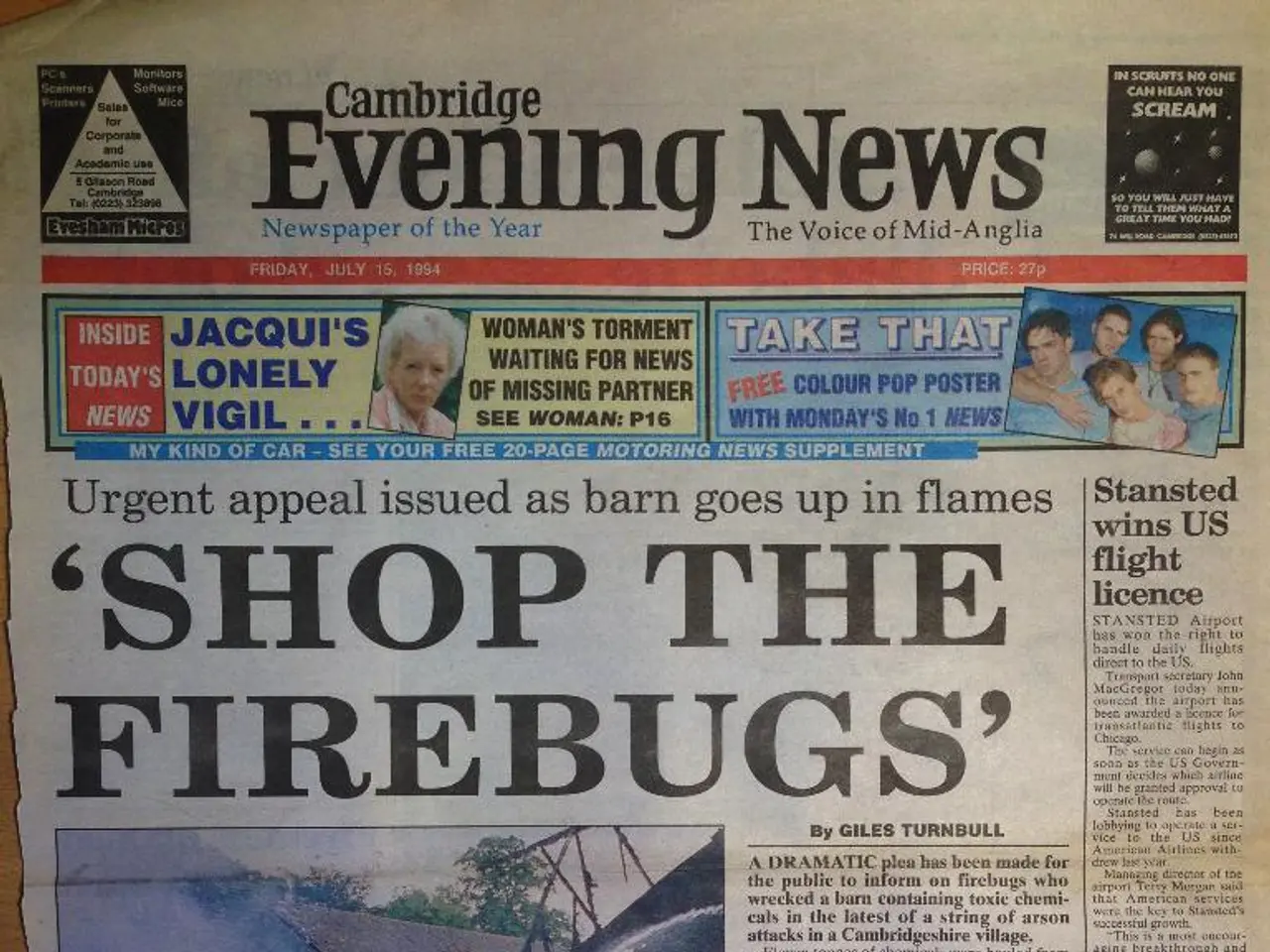Avoiding Political Blunders on Social Media During Elections
In the digital age, political campaigns must navigate the complex world of social media with care. Ignoring voter feedback, poor visual quality, and other common mistakes can lead to campaign failure, decreasing support, and engagement.
One of the most common social media mistakes to avoid is poor logo and branding design. A campaign logo that is not clear, scalable, or recognizable in various formats can harm voter recognition and trust. To avoid this, it's essential to design a clear, simple logo and secure an easy-to-remember domain name before launch.
Another pitfall is failure to research and manage online reputation. Candidates must Google themselves and remove or address potentially damaging content online before opponents do. Ignoring problematic material allows opponents to weaponize it.
Messaging that is tone-deaf, offensive, or easily misunderstood can lead to backlash and distract from campaign goals. To ensure tone and context align with audience sensitivities, messages should be crafted carefully with cultural awareness. Testing messaging internally and externally can help avoid missteps.
Campaigns that seem insincere or engage in "woke-washing" without genuine inclusivity risk deep reputational harm and loss of voter trust. Embedding genuine diversity and inclusion values into the campaign's core is crucial.
Allowing misinformation and disinformation to spread unchecked is a major risk. False or misleading content, whether inadvertent or malicious, can undermine campaigns and elections. Campaigns must actively monitor and counter false information.
Inconsistent messaging across platforms can lead to voter confusion, weaken brand identity, and reduce perceived credibility. Leaving negative comments unanswered can allow criticism to spread unchecked and create a perception of avoidance. Ignoring social media trends can make a campaign appear outdated and less relevant to younger or digitally active voters.
Without a clear social media strategy, campaigns risk wasting resources, missing key opportunities, and delivering unfocused messages. Overposting on social media can overwhelm followers, lead to unfollows, and diminish the impact of important messages. Platform-specific content is important in political marketing as each social media platform has unique audience preferences and formats.
Without paid social media advertising, campaigns may struggle to reach broader audiences beyond their organic followers, especially in competitive races. Over-reliance on automated political social media posts can make content feel impersonal, miss real-time opportunities, and lead to mistakes if posts go unchecked.
Monitoring competitors online helps campaigns identify successful tactics, anticipate challenges, and adapt strategies to remain competitive. Spreading misinformation online can result in legal issues, loss of credibility, and long-term damage to a candidate's public image.
Lack of engagement on social media can reduce its effectiveness by missing opportunities to connect with voters and build loyalty. Following these guidelines will improve first impressions, build voter trust, and shield the campaign from costly reputational damage or loss of support.
[1] "10 Social Media Mistakes to Avoid in a Political Campaign." Campaigns & Elections, 2019, www.campaignsandelections.com/campaign-insider/10-social-media-mistakes-to-avoid-in-a-political-campaign.
[2] "Online Reputation Management for Political Candidates." Reputation Management, 2020, www.reputationmanagement.com/political-reputation-management-for-political-candidates/.
[3] "Avoiding Social Media Mistakes in Political Campaigns." Social Media Today, 2018, www.socialmediatoday.com/news/avoiding-social-media-mistakes-in-political-campaigns/553384/.
[4] "The Role of Misinformation in Political Campaigns." Harvard Kennedy School, www.hks.harvard.edu/news/2019/03/role-misinformation-political-campaigns.
Read also:
- Setting Up and Expanding Operations at a Soil Blending Facility
- Surveying the Scene: Legality, Drones, and American Anti-Terror Strategy
- Regional University's healthcare system strengthened through collaborative partnership with Chancellor Dr Fiona Hill
- Reminisced University Trustee David M. Flaum as a 'fervent advocate' for the University and community




